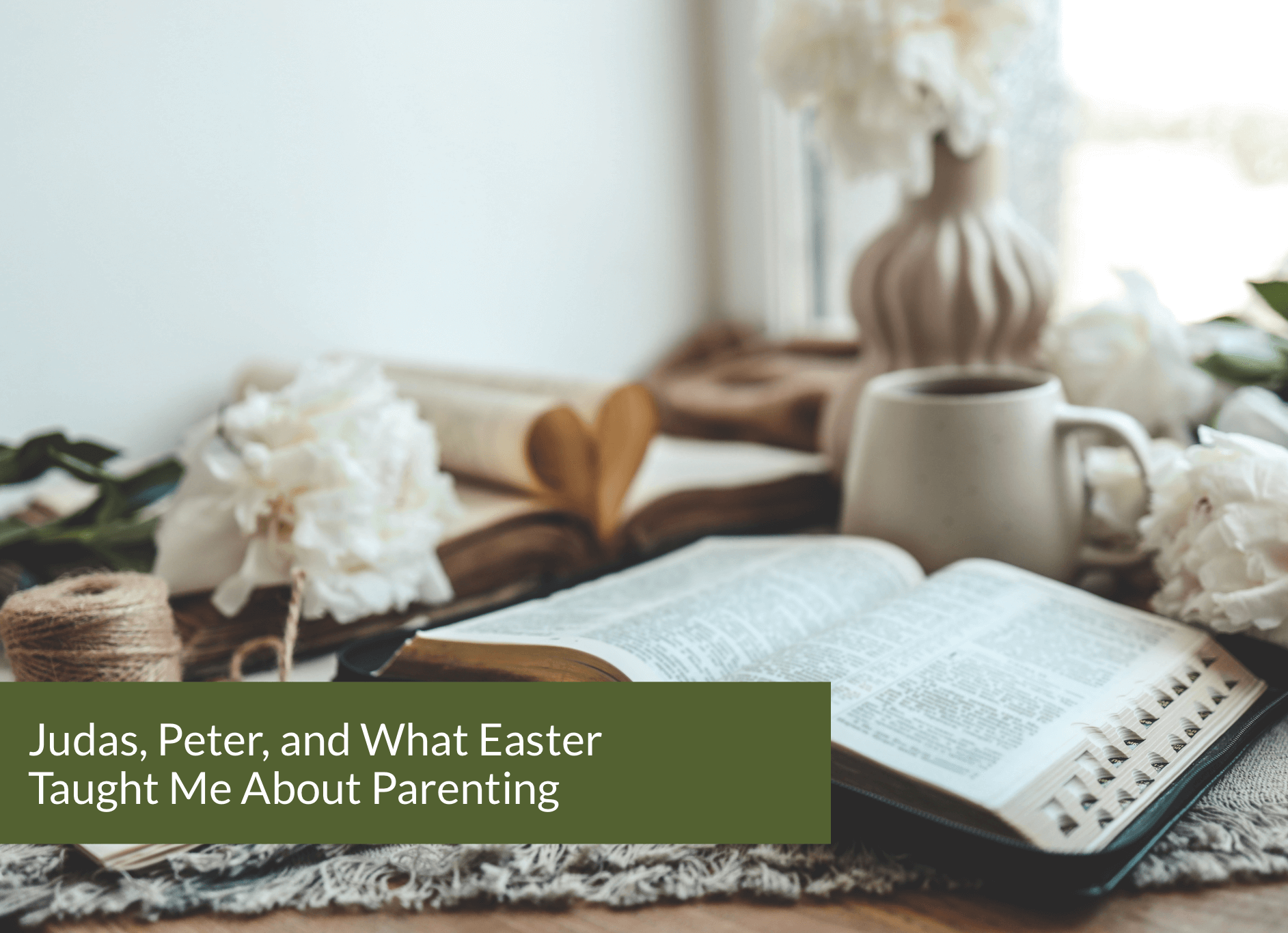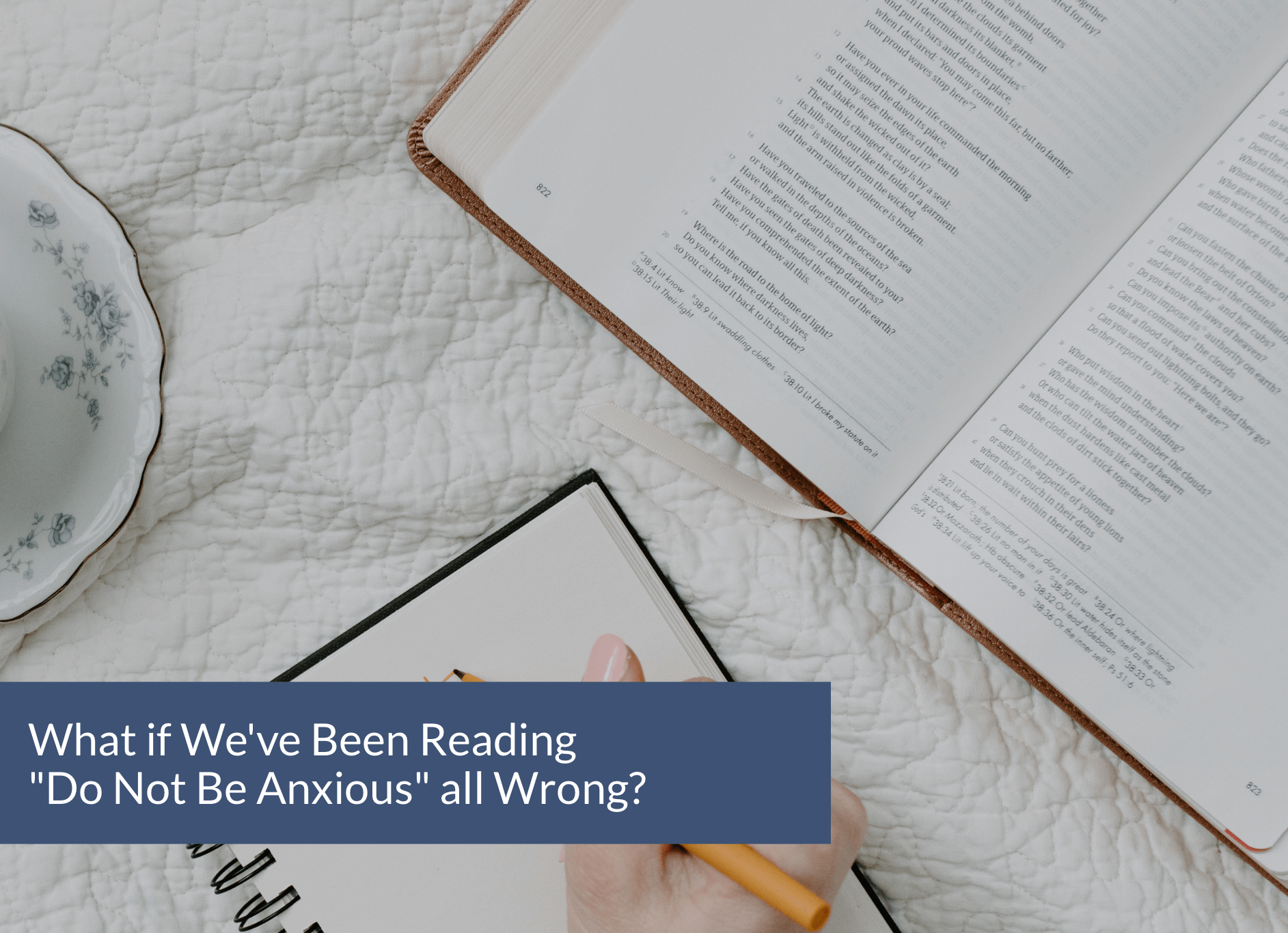
This week, I’ve been reading through the resurrection story again - something I try to do slowly and intentionally every Easter season.
But this time, two names kept standing out to me in a way they haven’t before:
Judas and Peter.
Two of Jesus’ closest disciples.
Two men who loved Him.
Two men who, in His most vulnerable moment, betrayed Him.
Read more...Two men who loved Him.
Two men who, in His most vulnerable moment, betrayed Him.

This week, I’ve been reading through the resurrection story again - something I try to do slowly and intentionally every Easter season.
But this time, two names kept standing out to me in a way they haven’t before:
Judas and Peter.
Two of Jesus’ closest disciples.
Two men who loved Him.
Two men who, in His most vulnerable moment, betrayed Him.
Read more...Two men who loved Him.
Two men who, in His most vulnerable moment, betrayed Him.

Our family has been through quite a lot in the past six months. We've launched a book, walked through a health emergency that shook us—complete with a life flight, packed up and moved out of our home of 15 years, moved into a multi-generational home with Amanda's parents and brother, hosted Thanksgiving and Christmas, finished writing the study guide to our book, and recorded video sessions for it. Add to that David’s annual work review, traveling to attend and speak at conferences, juggling meetings with our contractor about the house remodel, and, oh yes, parenting our kiddos! At times,, the weight of it all felt immense. I won’t pretend it’s been easy. It's been hard, overwhelming at times. But through the chaos and exhaustion, God’s goodness has been so, so evident. In every moment—good and hard—He has been right there, anchoring us.
Read more...
Chubby little preschooler hands wrapped around treasured ornaments as I tried my best to oversee the decorating of our tree.
My boys were young, barely out of diapers and — try as I might to make some sort of magic out of decorating — the noise of my young sons arguing over who would hang the ornaments meant the whole experience felt more like barely-controlled chaos than magical memory-making.
“I need a break,” I whispered under my breath and to my husband. Then, I hastily locked myself in my room for a moment to reset and calm myself from overstimulation.
It was there, in the quieter-but-not-all-that-quiet space that I realized the weight of pressure had settled on me. I was reminded of something deeper: Christmas was never about creating magic. It’s always been about resting in the miracle. The miracle of with — God with us.
Sign up here to receive free daily notes from (in)courage, sent right to your inbox.

For many of us, emotions can feel like a mixed blessing—“positive” emotions give spice and vitality to life, while “negative” emotions are the obstacles that lead us into sin and thus are something to suppress. But what if emotions, both the delightful ones and the uncomfortable ones are a precious gift from God?






